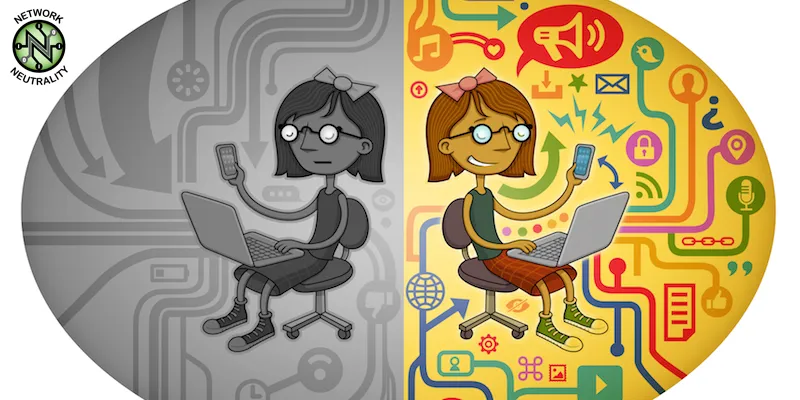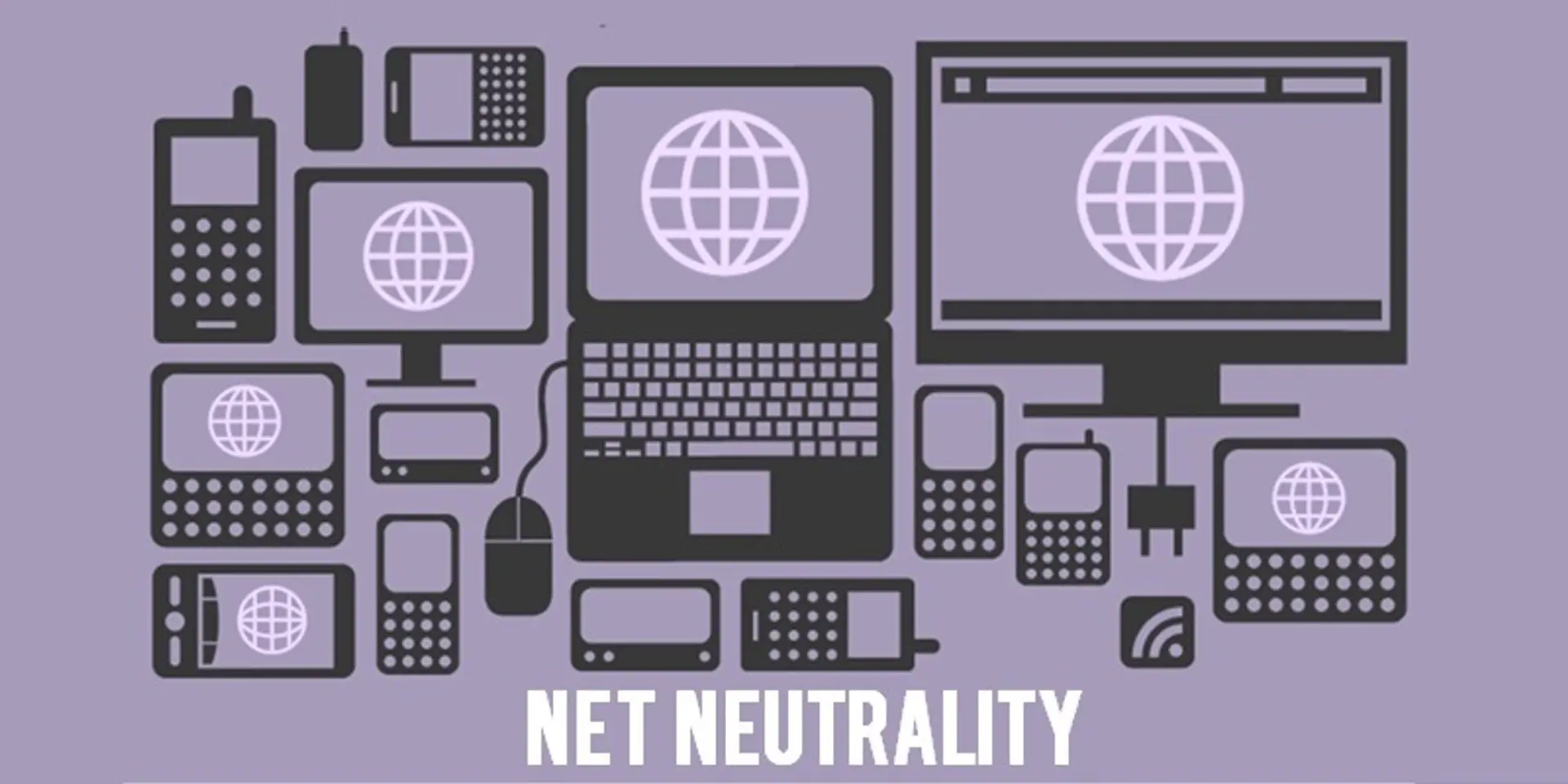If access is not flat how will internet be flat?
I come from a rural background and have seen that part of India which doesn’t have proper access to even basic facilities. Internet may be a commodity for Bangalore but it is luxury in Khandwa city. Almost 200 kms from Indore, Khandwa has 2G network with 12 Kpbs line and low userbase. They don’t have the buying power of Rs 100 per month for a data pack.

Where to begin?
We live in a world which doesn’t even have a fair distribution of capital and opportunity. We live in a world which is unequal based on access, capital and opportunity. Millions of people can’t afford internet plans or even voice plans. They need access first and then make a decision to choose what is right and wrong. At present, they don’t have that choice. (Hope all the advocates of free internet want to work for them and make money from them). If we don’t have equal access to wealth then we don’t have equal access to neutral internet or apps.
User buying power is not flat so internet access is also not flat
According to net neutrality activists, the internet is flat. But I argue that it is not flat at all because the buying power of people is not same. If access is not flat how will internet be flat?
Access points are also not flat for users
Mobile/web browser: Pushed search engines on browsers with keyword rankings, which controls access of pages by search engines.
Mobile App Stores: App ranking drives downloads, which is based on undisclosed algos, Keyword search is also ranked. So App discovery is controlled. So it eventually controls access point for users.
The present state of Internet
At present, the top 10 websites control 80% of the traffic. Search engines control website ranking, and browsers control search engines. App stores control app ranking and downloads. Device makers control which app and services will be preloaded or allowed. Mobile OS companies control app stores, and in turn app stores decide which app will be available to users or they can’t be installed with app store approval. So tell me, how many gates we have on access after having neutral internet? All this gates are controlled by OTT players and their business interests.
You are a small developer with beautiful, high quality, most innovative, awesome and problem solving product. Still you need app stores to distribute it. Who controls ranking of your apps in the app store. App stores can ban your application anytime. They have control over it. Still you believe that you can live in a neutral internet world with flat access. We don’t live in a neutral world.
How to break these gates?
You need capital for those gates to get discovered. Banks don’t loan for internet startups. So you get capital from Angel or VC funding. The funding required is very large to sustain and create companies. Yet 80% of your money will go to these top 10 OTT companies for acquiring users. Still we live in a flat and fair world? Currently, you can’t break the gates. Suppose on your mobile you have three app stores. If they feature you then you get free downloads. Otherwise you have to buy users in a net neutral world like you do for advertising on newspaper. May be Airtel Zero is same for you.
Mobile operators
They are the most ‘lovely creatures’ in this eco-system. They have made many mistakes, and as a result developers did not get a good deal from them. The ratio and access of mobile operators with WAP portals was bad, but the rise of app stores solved this problem for developers.
The mobile operators partnered with social media and messaging apps for Rs 10 and three-day access. Did this break net neutrality or not? Now that the honeymoon between OTT players and operators is over, and the operators want to push other players outside the top 10, there is so much noise and a million patrons of OTT are rising against operators to save the internet!
I want to ask all those ‘Save the Internet’ guys, did you ever use 30 days free internet enabled messaging app pack from operators? If you did, you have no right to speak. You broke the neutrality the same day when a few apps/sites got cheaper access. Now if Flipkart is riding on the same wave, why are you creating so much noise? Isn’t it hypocrisy?
Remember in 1998, India had only two percent tele density. Airtel and other operators changed this scenario in 17 years to bring it at 80% tele density. They have invested in spectrum, tower installation, hiring people and keeping the whole eco-system on track with 30% tax contribution to the Indian government. Imagine the amount of contribution by Airtel, Vodafone, Idea and other operators for buying spectrum. This money was used to create roads, dams and many social projects in India. So are they as evil as you think? Yes, they did take advantage of users, and are paying the price for it. But they will move on and change themselves. The market is brutal to everyone.
Top 10 OTT players
They are ‘holier-than-thou’ players. They don’t pay taxes in India but they control the fate of 300 million users in India. They run business from Finland or Netherlands. They collect advertising dollars, they ban apps and games, control app store rankings, and control access to our users. They are not governed by Indian laws. But they are the ‘holy’ people in the whole eco-system because they make things free for you. They are not accountable to Indian courts as they work outside the India jurisdiction. But they are ‘holy’ because we have been pushed to this philosophy of the liberal mind by our most faithful media.
Innovation is not always about making things free. The society which is looking for anything free will destroy itself from the inside than from the outside. If X companies get cheaper pack plans then we have no media noise. But if Y company gets free access to users then those net neutral X companies come and fight for neutrality.
Small OTT players
These players make products and put them in the app stores, which already have two million products. They then raise capital to reach consumers and focus on their business. Anyway net neutrality is too big a war. If you want to reach the top 1000 in app stores then also you need capital or featuring. We should focus on access to reach users rather than neutral net, which is already owned by the top 10 players.
Commodity argument of Internet like electricity and water
I have been hearing this argument from a long time. Internet can’t be broken as you can’t break an electric bill. Almost thousands of villages in India still don’t have electricity after 65 years of independence. It is an accessibility problem. Mumbai got electricity in 1882 but those remote areas are still struggling for electricity. Operators can’t give free internet to those villages as they have huge investment costs. If companies are ready to share that cost with them then we can solve the access problem. I know for a fact that those companies which are giving free internet have business interests. We can make policy framework around that. But access is a different problem than dividing internet speed.
My 360 view
One thing is sure no one is a saint in this system.
Mobile operators: They want to make money on providing free access and charging a few companies. It will give them access to revenue of ad networks, which they don’t have right now.
Top 10 OTT players: The top 10 players have income from their ad networks. They will bleed money. So they have to protect it. It will destroy app ranking and search engine ranking system.
Small OTT players: They need to raise funds from VC to either pay mobile operators or ad networks to survive. Anyway, app store or search engine model works on money. It doesn’t work on innovation. Top companies in the world are not funded on technology. They are funded on user acceptance and retention.
Consumer: They were getting cheap social media and messaging apps. They were happy. When operators talked about free Flipkart and expensive VoIP, they cried foul. Small cities will be very happy with free Airtel Zero as well as the huge audience in urban slums, and rural India will be happy with zero plans. Only three percent of so-called media driven, self-informed people will shout and cry.
And finally
- When individual economics is not flat then access is not flat for everyone.
- Every player has their own interest in this debate. We are being used by our media the same way on Aug 16, 2011.
- The India government should create laws, which increases tax income to govern our digital economy for a better India.
- Operators have to learn from their past mistakes and focus on creating an eco-system. India is a large country. They can play a major role in solving access problem as well as developer problems.
Suggestions: The government should think of providing all government apps and services free to users, where government pays for the data plan. For example, birth certificates, land records, driving license and many more. I think India needs government services access free for every phone rather than a shopping cart.
As a parting shot, I don’t support changing of bandwidth for the app or website. It will be a basic law breaking for the internet.
(Disclaimer: The views and opinions expressed in this article are those of the author and do not necessarily reflect the views of YourStory.)







